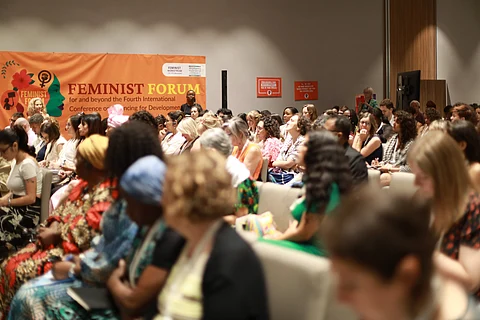

A $420 billion annual shortfall is undermining efforts to achieve gender equality in developing countries, according to United Nations agency UN Women, which has called for urgent action from governments and financial institutions to address chronic underfunding and systemic financial barriers.
The warning came as world leaders gathered in Seville, Spain for the Fourth International Conference on Financing for Development (FfD4). The summit concluded with the adoption of the Compromiso de Sevilla, a joint commitment to inclusive and sustainable development. UN Women welcomed the agreement, describing it as a sign of “shared commitment” amid a difficult global economic landscape, but said it must be followed by tangible financial action.
Despite increasing recognition that gender equality is fundamental to economic development, UN Women highlighted the disconnect between political rhetoric and financial delivery. “The money simply is not reaching the women and girls who need it most,” the agency stated in its press release.
The estimated $420 billion annual gap refers to the funding required for countries to meet gender equality targets set out under the United Nations-mandated Sustainable Development Goals. UN Women said this shortfall is rooted in chronic underfunding, ineffective tracking of spending and inequitable global financing rules that divert resources away from the world’s poorest countries, where most low-income women live.
Only a quarter of countries have systems in place to monitor how public funds are allocated to gender equality, hampering efforts to plan and deliver national development goals, according to the agency.
“We cannot close gender gaps with blind budgets,” said Nyaradzayi Gumbonzvanda, UN Women’s deputy executive director. “Governments must back their commitments with real investment and track how money is spent and what it achieves.”
UN Women put forward a set of recommendations to address the crisis, including:
Expanding the use of gender-responsive budgeting to ensure public funds meet the specific needs of women and girls.
Implementing urgent debt relief and progressive tax reform to free up revenue for investment in health, education, and care.
Rebalancing public spending to prioritise long-term development goals, including peacebuilding and inclusion.
Investing in care infrastructure such as childcare and eldercare, which the agency said could reduce poverty, raise household incomes, and create millions of jobs if countries allocated 10 per cent of national income to the sector.
The agency stressed that without sustained, transparent, and accountable financing, global commitments such as the 2030 Agenda for Sustainable Development and the Beijing Platform for Action risk falling short.